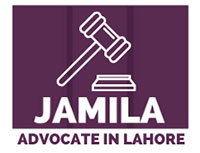Muslim Personal Law in Pakistan
Muslim Personal law: Advocate Jamila Ali is the best lawyer in Lahore dealing in Muslim personal law in Pakistan. Pakistan is an Islamic republic, so the private law of its Muslim residents is totally ruled by Islamic principles. The Muslim Personal Law in Pakistan is a set of legal guidelines that applies to the Muslim community in Pakistan. These laws deal with troubles associated with many issues like marriage, divorce, inheritance, and different non-public topics. In this blog, we can take a more in-depth observe the Muslim Personal Law in Pakistan, its history, and its modern status in Pakistan.
History of Muslim Personal Law in Pakistan:
Muslim personal law in Pakistan: Pakistan inherited its felony device from British India rule. Before the Partition of India in 1947, the Muslim community in India turned into ruled via the Muslim Personal Law in Pakistan (Shariat) Application Act, 1937. This law was mostly carried out to all Muslims in India and supplied for the application of Islamic law to problems associated with online marriage in Pakistan, divorce, and inheritance.

Muslim personal law notes: After the introduction of Pakistan in 1947, the brand new Islamic nation needed to establish its felony gadget. The Muslim Personal Law (Shariat) Application Act, 1937, turned into following the idea for Muslim Personal Law in Pakistan. However, the law applied on Muslims were amended to reflect the new Pakistan’s Islamic identification. In 1961, the Muslim Family Laws Ordinance was added, which was carried out for all Muslims in Pakistan. The ordinance aimed to modify topics associated such as marriage, divorce, protection, and child custody in Pakistan. The ordinance also supplied for the establishment of Family Courts to adjudicate family disputes. In 1973, the new Constitution of Pakistan was adopted, making Islam the national faith of the country. The Constitution additionally declared that every law applied in Pakistan must be steady with Islamic concepts.
Code of Muslim Personal Law: The Muslim Personal Law in Pakistan is ruled with the aid of the Muslim Family Laws Ordinance, which applies to all Muslims living inside Pakistan. The ordinance gives for the following: Marriage: Under the ordinance, a Muslim court marriage may be solemnized with the help of a lawyer. The marriage contract must be in writing and signed by way of both events including witnesses. The bride must have a Wali (father or mother) who needs to give his or her consent to the marriage.
Divorce: A Muslim husband has the proper way to divorce in Pakistan by announcing Talaq. The Talaq may be given orally or in writing. However, the husband has to deliver word to the spouse and the arbitration council of his goal to divorce through a lawyer. The spouse also has the right to seek Khula in Pakistan (divorce) from her husband under certain situations.
Maintenance: A Muslim husband is answerable for preserving his spouse for life and kids. If the husband fails to offer upkeep, the spouse can seek preservation through the Family Courts to maintain the wife in Pakistan.
Inheritance: The Muslim Personal Law in Pakistan gives way for distributing the deceased’s assets consistent with Islamic standards through a property lawyer in Lahore, Pakistan. The property is split to most of the deceased’s heirs in step with the policies of inheritance prescribed within theHoly Quran.
Criticism of Muslim Personal Law in Pakistan: The Muslim Personal Law in A few human rights groups as usual have criticized Pakistan for its discriminatory provisions towards women. The laws related to marriage, divorce, and inheritance is visible as favouring guys over ladies. For instance, below the Muslim Personal Law, a Muslim guy can marry up to four other wives. The laws associated with divorce in Pakistan additionally desire guys, as they can divorce their better halves unilaterally. At the same time, a female can handiest are seeking Khula in certain situations through court. The legal guidelines associated with inheritance also discriminate against women as per human rights. Under Islamic law, a daughter is entitled to the most effective half of the share of her brother in the inheritance. This provision in law has been criticized as being unfair to ladies.
Conclusion: The Muslim Personal Law in Pakistan is fixed on legal guidelines that apply especially to the Muslim network in Pakistan. The laws cover issues specially associated with marriage, divorce, inheritance, and different non-public matters.
